Embarking on a journey to a healthier lifestyle often necessitates tough choices, particularly when it comes to diet. Health experts frequently advise reducing or eliminating specific foods to improve overall well-being. In this article, we’ll explore 17 foods that, when cut from your diet, can lead to noticeable improvements in health and vitality.
Processed Meats

Processed meats like sausages, bacon, and ham may add flavor to your plate, but they come with a hefty price. High in saturated fats and nitrates, they pose significant health risks. Studies correlate these meats with increased cancer risks, particularly colorectal cancer.
While savoring a crispy bacon strip might seem irresistible, moderation is crucial. Opting for fresh cuts of meat, such as chicken or turkey, can be a healthier alternative.
Ultimately, reducing consumption of processed meats could enhance cardiovascular health, potentially increasing longevity and vitality. Thus, consider trading processed meats for fresher options.
Sugary Beverages

Sugary beverages can be refreshing, but they’re not as innocent as they seem. Laden with empty calories, these drinks contribute to the obesity epidemic. Additionally, they’re a leading cause of type 2 diabetes in both adults and children.
Quenching your thirst with water or herbal teas can be a far better choice. This simple swap not only aids weight management but also supports overall health.
By reducing sugary drink intake, you may notice improved energy levels and a decrease in sugar cravings, making it easier to maintain a balanced diet.
Refined Grains
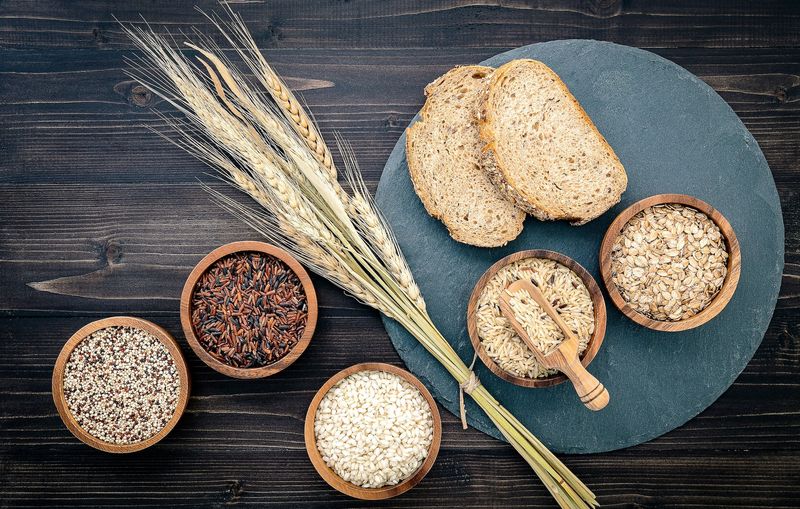
Refined grains, stripped of their nutritional value, offer little more than a quick energy spike followed by fatigue. White bread, pasta, and pastries dominate this category, lacking the fiber essential for digestive health.
Switching to whole grains like brown rice and whole wheat bread can improve nutrient intake and satiety. Whole grains are known to boost heart health and stabilize blood sugar levels.
Incorporating more whole grains into your diet could lead to sustained energy throughout the day, reducing the need for constant snacking and supporting weight management goals.
Trans Fats

Trans fats, once a staple in many processed foods, are now recognized as dietary villains. Found in items like margarine, fried foods, and baked goods, they increase bad cholesterol levels.
This increase raises the risk of heart disease, making trans fats a target for elimination in many health guidelines.
Cooking with healthier oils, such as olive or canola, and choosing fresh over fried can significantly reduce trans fat intake. Avoiding trans fats could lead to improved heart health and decreased inflammation, enhancing overall well-being.
Artificial Sweeteners

Artificial sweeteners, marketed as sugar substitutes, often promise guilt-free sweetness. However, they may lead to unexpected consequences. Some studies suggest they disrupt metabolism and alter gut bacteria.
While they reduce calorie intake, their long-term effects remain under scrutiny. Choosing natural sweeteners like honey or maple syrup might be a better alternative.
Eliminating artificial sweeteners can lead to a more balanced diet and potentially reduce cravings for overly sweetened foods, fostering healthier eating habits in the long run.
High-Sodium Foods
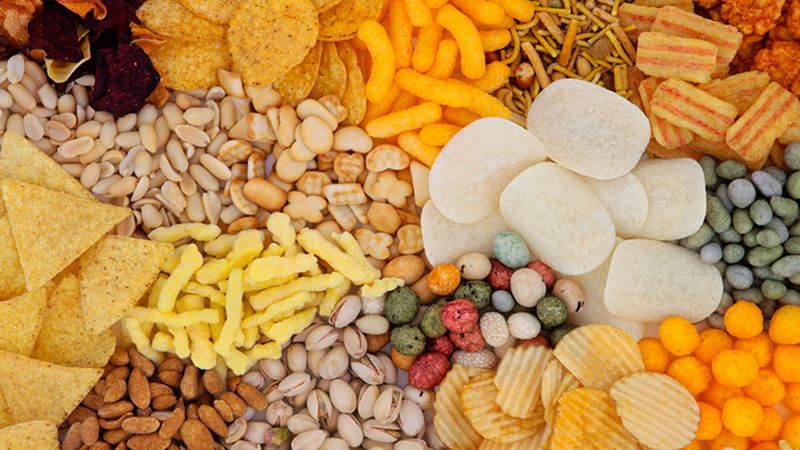
Despite enhancing flavor, high-sodium foods can elevate blood pressure, posing threats to cardiovascular health. Common culprits include chips, canned soups, and deli meats.
Reducing salt intake is a simple yet effective way to support heart health. Opting for fresh, unprocessed foods and using herbs for seasoning are practical strategies.
By minimizing high-sodium foods, you may experience improved blood pressure levels and reduced risk of stroke, contributing to overall wellness and longevity.
Packaged Snacks
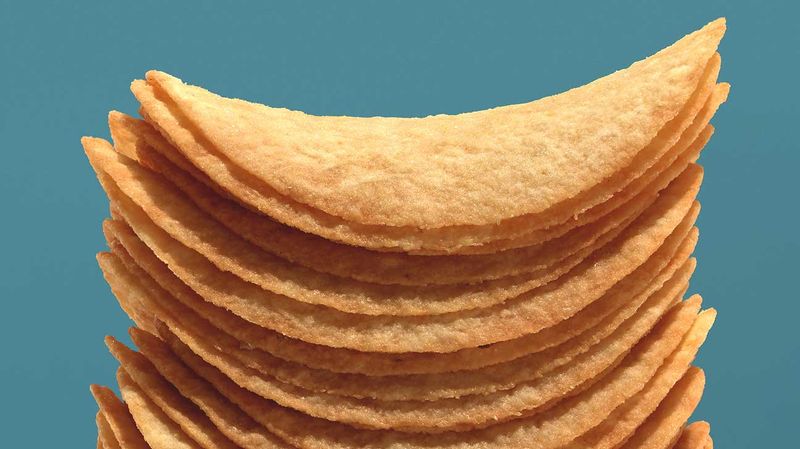
Packaged snacks offer convenience but often lack nutritional value. They are usually high in sugars, unhealthy fats, and preservatives.
While they can be a quick fix for hunger, choosing fruits, nuts, or yogurt as snacks provide essential nutrients and energy. These healthier options contribute to overall health and well-being.
By cutting down on packaged snacks, you may find improved digestion and a clearer complexion, along with a more balanced diet.
Fast Food

Fast food offers quick satisfaction but at a cost to health. Often high in calories, fats, and sugars, it can lead to obesity and related diseases.
Exploring home-cooked meals or healthier takeout options can significantly improve dietary intake. These alternatives provide better control over ingredients and portion sizes.
By reducing fast food consumption, you might notice increased energy and better focus, fostering a more active and vibrant lifestyle.
Alcohol

While alcohol can be a social lubricant, excessive consumption poses numerous health risks. It affects liver health, increases cancer risk, and contributes to weight gain.
Moderation or choosing alcohol-free days can make a positive impact on overall health. Exploring non-alcoholic beverages might offer new favorites.
Cutting back on alcohol can lead to improved sleep, clearer skin, and enhanced mental clarity, paving the way for a healthier lifestyle.
Candy

Candy, with its bright allure, can be a delightful treat but is often packed with sugars and artificial ingredients. These can lead to cavities and energy crashes.
Opting for natural sweets like fruits can satisfy sugar cravings while providing essential nutrients. This switch supports dental health and maintains energy levels.
Reducing candy consumption can result in improved oral health and steadier energy, contributing to a more balanced and healthful diet.
Energy Drinks
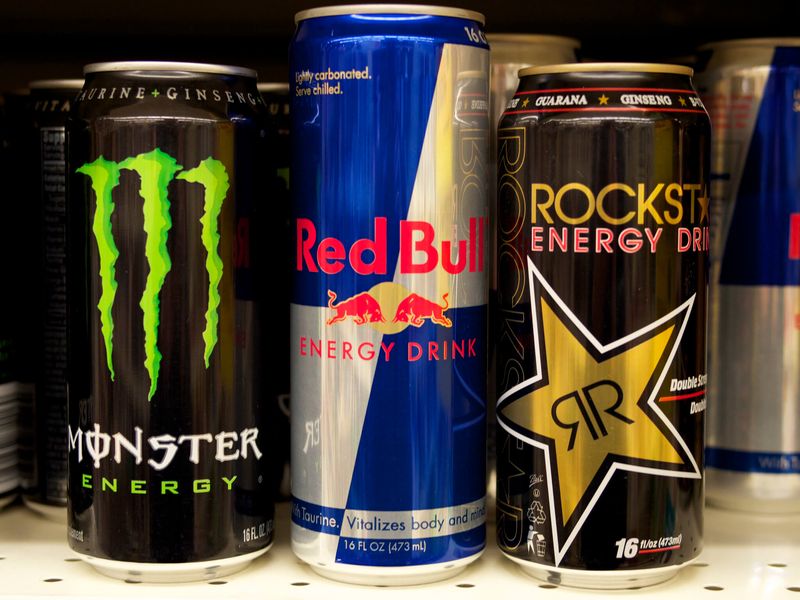
Energy drinks promise a quick boost but often contain excessive caffeine and sugars, leading to jitteriness and energy crashes.
Replacing them with water or natural fruit juices can provide hydration and nutrients without the crash. This choice supports sustained energy and overall health.
Cutting down on energy drinks may improve heart health and reduce anxiety, promoting a more balanced lifestyle and better sleep patterns.
High-Fructose Corn Syrup

High-fructose corn syrup, prevalent in processed foods, contributes to obesity and metabolic disorders. It’s often found in sodas, candies, and baked goods.
Choosing products without this sweetener or making homemade versions can support healthier weight management. This approach aids in reducing empty calorie consumption.
Eliminating high-fructose corn syrup from your diet can lead to better metabolic health and reduced risk of chronic diseases.
Ice Cream

Ice cream is a beloved treat but is often high in sugars and fats, contributing to weight gain and insulin spikes.
Exploring frozen yogurt or sorbet offers similar satisfaction with fewer calories and sugars. These alternatives promote a balanced approach to indulgence.
By reducing ice cream intake, you may enjoy better weight control and fewer sugar crashes, supporting a healthier lifestyle overall.
White Rice
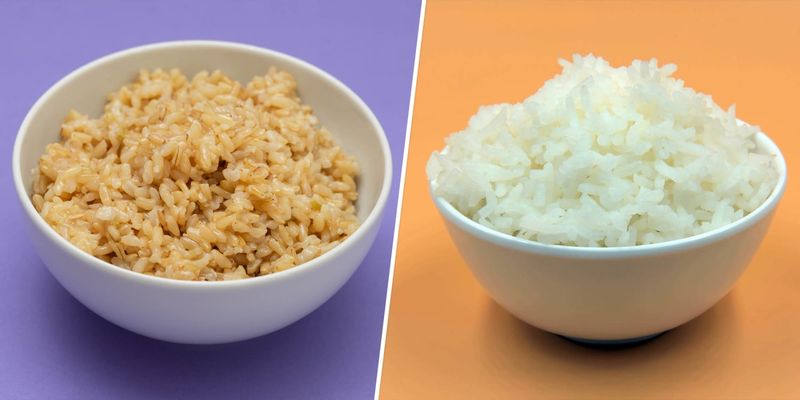
White rice, a staple in many diets, offers quick energy but lacks the fiber found in whole grains. This absence can lead to rapid blood sugar spikes.
Switching to brown rice or quinoa provides more nutrients and better glycemic control, supporting sustained energy and fullness.
Reducing white rice consumption might improve digestive health and assist in weight management, fostering a well-rounded diet.
Canned Soup

Canned soups offer convenience but are often laden with sodium and preservatives. These ingredients can elevate blood pressure and affect heart health.
Preparing homemade soups with fresh ingredients ensures better control over salt content and nutritional value. This choice enhances taste and health benefits.
By opting for homemade over canned soups, you may experience improved heart health and flavor satisfaction, contributing to overall wellness.
Pastries

Pastries, with their buttery layers, are an indulgence but usually high in sugars and fats. These can lead to weight gain and spikes in blood sugar.
Exploring whole-grain or homemade versions can offer similar enjoyment with improved nutritional benefits. This approach supports healthier eating habits.
Reducing pastry intake may lead to better weight management and stable energy levels, promoting a more balanced diet and lifestyle.
Leave a comment